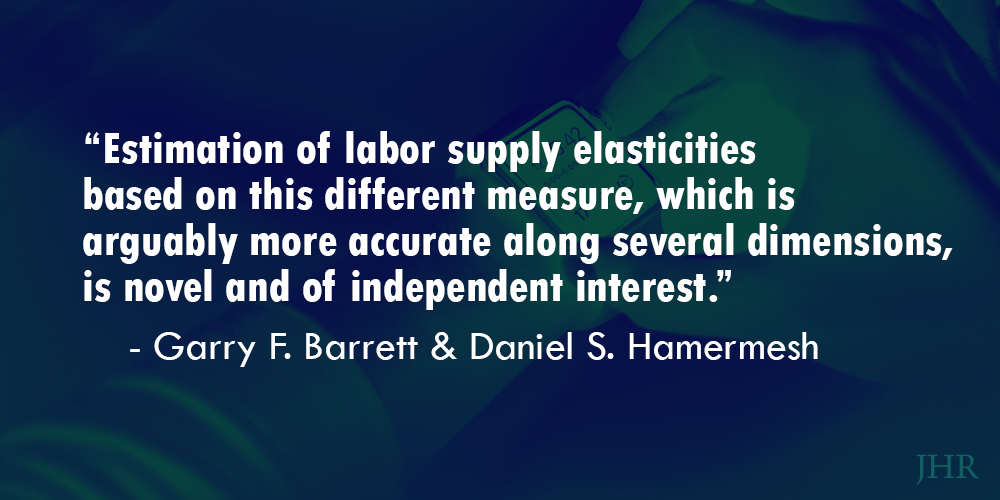Understanding Working Hours—Can We Rely on Worker-Recalled Data?
Economists need to understand workers’ reported working hours to develop sound policies related to the labor market, such as income-tax systems, childcare programs, and universal basic-income schemes. In a new study, Garry Barrett (University of Sydney) and Daniel Hamermesh (Barnard College) asked: How well do workers report their hours? Do we really have an accurate understanding of the labor supply?
Using data for a large set of U.S. individuals, Barrett and Hamermesh examined the working hours reported by workers in two ways: (1) a record of how much they recall working last week and (2) a diary of time working the previous day.
The researchers looked at how these two reported sets of hours vary among workers in relation to their wage rates. This is important because all of the immense number of studies that examine labor supply rely on the “recall” measure. The results show that recalled hours worked varied more with differences in wage rates than did the daily diary of actual time spent working.
This result suggests that previous estimates of people’s responses to income-tax changes, unemployment insurance, and other programs overstate the likely effects on workers’ effort. The disincentive effects are not so large as is commonly believed. For example, the assumption that decreasing tax rates will get people to work much longer is incorrect—the responses are likely to be quite small.
Read the full study in the Journal of Human Resources: “Labor Supply Elasticities: Overcoming Nonclassical Measurement Error Using More Accurate Hours Data,” by Garry F. Barrett and Daniel S. Hamermesh.




